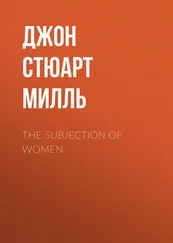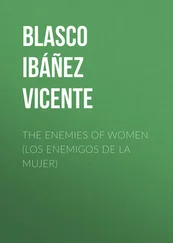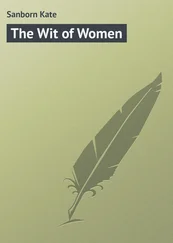“Why?” Yu Dasheng asked. He also arose from his leather chair, ready to see his guest out.
Tiao said, “Because she has passed away.”
Yu Dasheng sat back in his chair and signalled Tiao also to sit down. After a short silence, he said, “I didn’t know. This is very unfortunate — I mean, it was unfortunate for her. What was the illness — it must have been an illness?”
“Liver cancer.”
Tiao said, “I was with her when she was dying. I’m her family. Family, do you understand? She was a wounded beauty with hundreds of scars. And she told me that only her mouth was clean; her mouth had never been touched by a man. Many times she told me about the feelings she had for her father in her heart, saying she didn’t hate him at all. I assume she probably saved her lips for her father; she must have longed to kiss him with a mouth as innocent as a baby’s, grateful that he’d given her life. No one can maintain such discipline without turning discipline into faith. Fei had faith in her heart. Don’t you want to know what that was? It was her love and her quest for her father. Are you crying, Governor Yu? Can you tell me why? Just for a female worker’s death? Are you crying just for a female worker’s death?”
Yu Dasheng vaguely nodded his head and said, “I think you should leave now.”
“Don’t you have anything to say to me? I’m Fei’s friend.”
He said, “I know you’re Fei’s friend and your name is Tiao, the vice director of the Children’s Publishing House. You can come to me if there is anything that I can do for you for the publishing house. After all, Fei used to work in my factory. Let’s stay in touch.”
His tone calmed suddenly as he was saying this, and his body, which was leaning against the back of the chair, straightened up. There were no traces of tears on his face at all. Maybe Tiao was mistaken in what she had thought she’d seen. She still couldn’t make him out. This man, if he didn’t have enormous self-control or excellent acting skills, then he must be … what must he be? Unless he really was not Fei’s father.
She came out of the provincial government office certain that it was impossible for her to manage a conversation with a man like him, not to mention that he had already defined their relationship. She remembered the words he’d said that made her feel awkward: “After all, Fei used to work in my factory.”
That was all.
She felt pangs of dull pain in her heart.
Just then the pager in her purse went off. Wu was beeping her.
5
Wu lived a retired life now, a complete idler. As she’d got older, her dizziness had actually disappeared little by little. She no longer felt dizzy, since she didn’t have to use it to avoid the revolution in Reed River Farm. Maybe some degree of avoidance persisted in her life, though; she hid from her husband. There was some helplessness in her avoidance; it wasn’t that she was compelled to avoid him, but Yixun expressed his disgust for her more and more bluntly than ever.
He couldn’t bear to sit across from her during their meals together, nor could he tolerate the sound of her chewing. And the loud sounds she made when brushing her teeth and rinsing her mouth in the morning, along with her constant coughing, all tormented him. He hadn’t remembered her like this when she was young, or maybe she had been this way, only he didn’t notice. When you were young, you were young. He had worked in an army song-and-dance troupe before he went to college. He simply despised those comrades of his who thought they were funny. For instance, Comrade Zhang purposely said “beer water” instead of “beer”: “Let’s drink beer water, let’s drink beer water!” Comrade Li said “neat” instead of “meat” on purpose: “The canteen will serve neat today. Serve neat!” Everyone laughed except for Yixun, who thought it was vulgar. Another example was that when the soldiers wrote letters, they liked to use sentences like this: “One day apart seems three autumns …” Many felt it was touching, but Yixun thought this sort of exaggerated rhetoric made people squirm. One comrade of his liked to collect famous quotes and epigrams in a notebook he titled Bits of Gold and Jade. Everyone thought the name was wonderfully witty, but Yixun felt it was tacky. He never said what was on his mind, but always believed his taste better than his comrades’. However, he tried to ignore Wu’s habits in the bathroom. He would rather pretend that she didn’t have these habits, which emerged in middle age, a result of self-abuse and neurosis. She had a lot more time to spend with Yixun at home, so those habits of hers crashed into him like massive waves.
They quarrelled. He accused her of purposely making those hair-raising rasping noises while brushing her teeth, of watching TV until two a.m. and in the process managing to eat an entire grilled chicken, of using scalding water to make tea for a guest but not warming the rice porridge hot enough before serving him — also of sleeping late, of serving dirty cucumbers … She listened to his accusations, sometimes saying nothing and sometimes protesting mildly. When she answered back, he accused her of trying to make sense out of nonsense; when she kept quiet, he would say she was using silence to express her hatred.
In fact, Wu never hated Yixun. She had grown quiet because she knew her crime against Yixun was unpardonable, that it disqualified her from any forgiveness. She began to enjoy going out more; only when Yixun saw her less could she escape his accusations. It was actually Youyou’s mother who first gave her the idea. One day she wore her wig to market when she was buying food and ran into Wu, who was also shopping there. Youyou’s mother asked, “What do you think of my wig?”
“Not bad at all. It looks real,” Wu said.
Youyou’s mother said, “People who didn’t know me thought it was real. But I also embarrassed myself twice. Once, our senior fashion show team had an open-air performance at the square of the Workers’ Cultural Centre. All of a sudden a big wind rose up and blew off my wig. The audience roared with laughter. You could see how embarrassed I was! From then on, whenever I encounter a windy day, I always remember to keep my hand on my head.”
Soon Youyou’s mother brought Wu to join the senior fashion performing team. Wu didn’t covet the wig Youyou’s mother wore, because Wu had taken good care of her real hair. Wearing different fashions and giving public performances made Wu more conscious of her own appearance. She’d always been embarrassed by her nose, which she felt was not high and straight enough. The urge to have plastic surgery, starting with a nose job, took hold of her. Her youth had been spent during a time when women were encouraged to love guns more than makeup. So hadn’t she the right to make herself prettier nowadays? She went home and discussed it with Tiao, who immediately expressed her disapproval. Tiao’s opposition made Wu unhappy, but the troubled expression on Tiao’s face only strengthened her desire. She took the position that “I’m responsible for my own face” and “I make the important decisions about my own life.” Wu went to the hospital and had her surgery.
She was very satisfied with the surgery that the doctor performed. When she viewed the elevated bridge of her nose and how the distance between her eyes seemed less because of it, she experienced the thrill of the brand-new, despite the slight discomfort. She didn’t expect it to cause Yixun to sleep in a separate room from then on, and Tiao not only to refuse to go shopping with her but even to visit home much less often. Month after month, Tiao made the excuse that her job at the Publishing House kept her too busy and she had to stay at her own place. Even when she did come home, she tried to avoid looking at Wu’s face, and also refused to let Wu look at hers. Even when Wu stood at the far end of the living room, even when Tiao closed her eyes, she could still feel Wu’s gaze on her face. This made her very angry; she would lose her temper all of a sudden and say, “Mum, why do you always stare at me? Would you not stare at me like that?”
Читать дальше
Конец ознакомительного отрывка
Купить книгу












